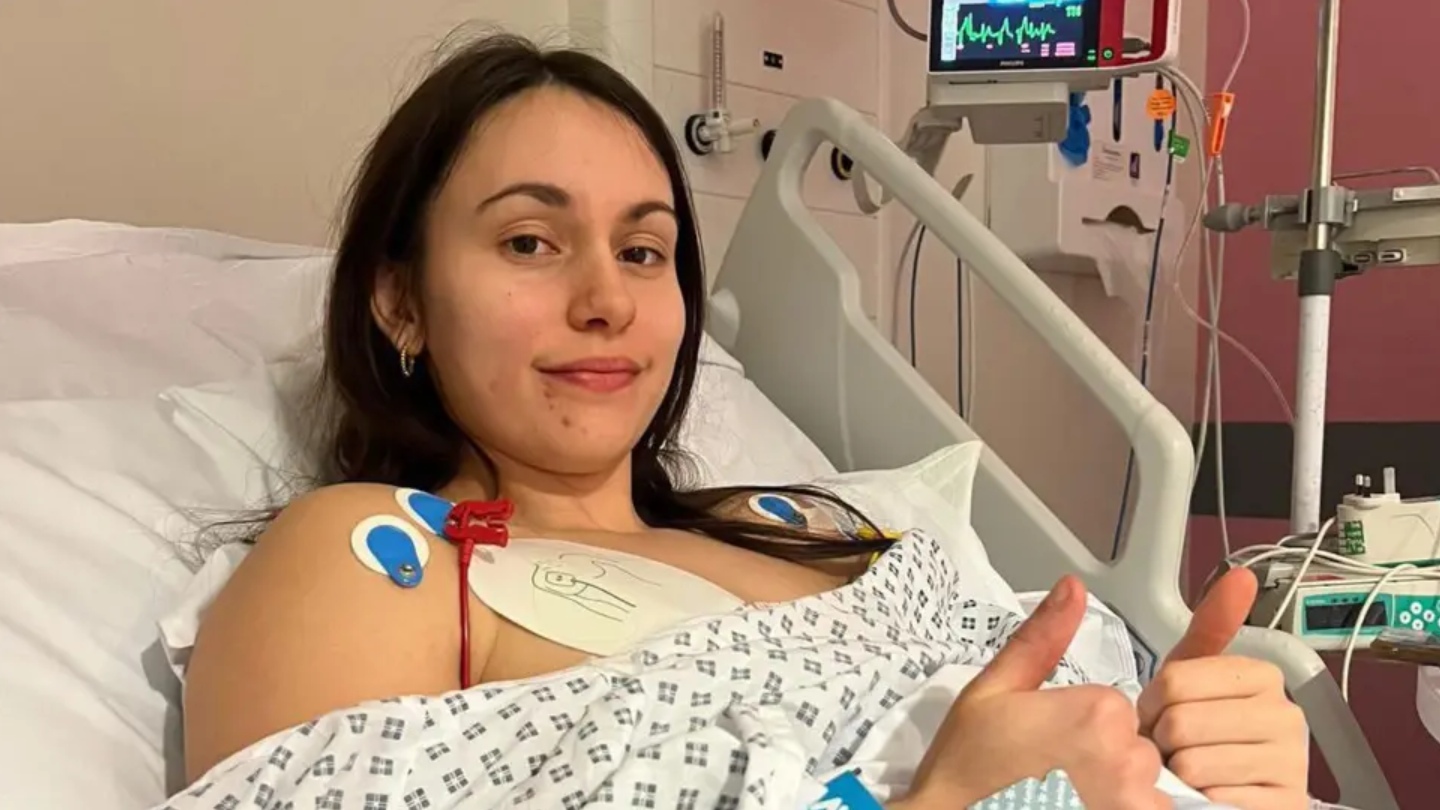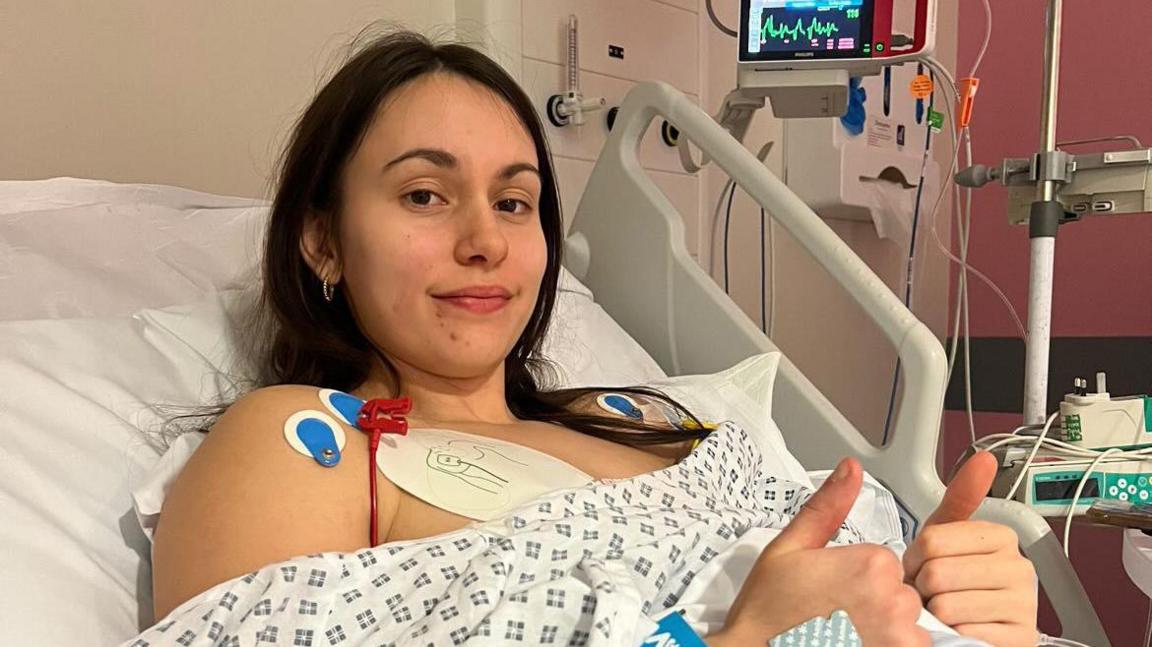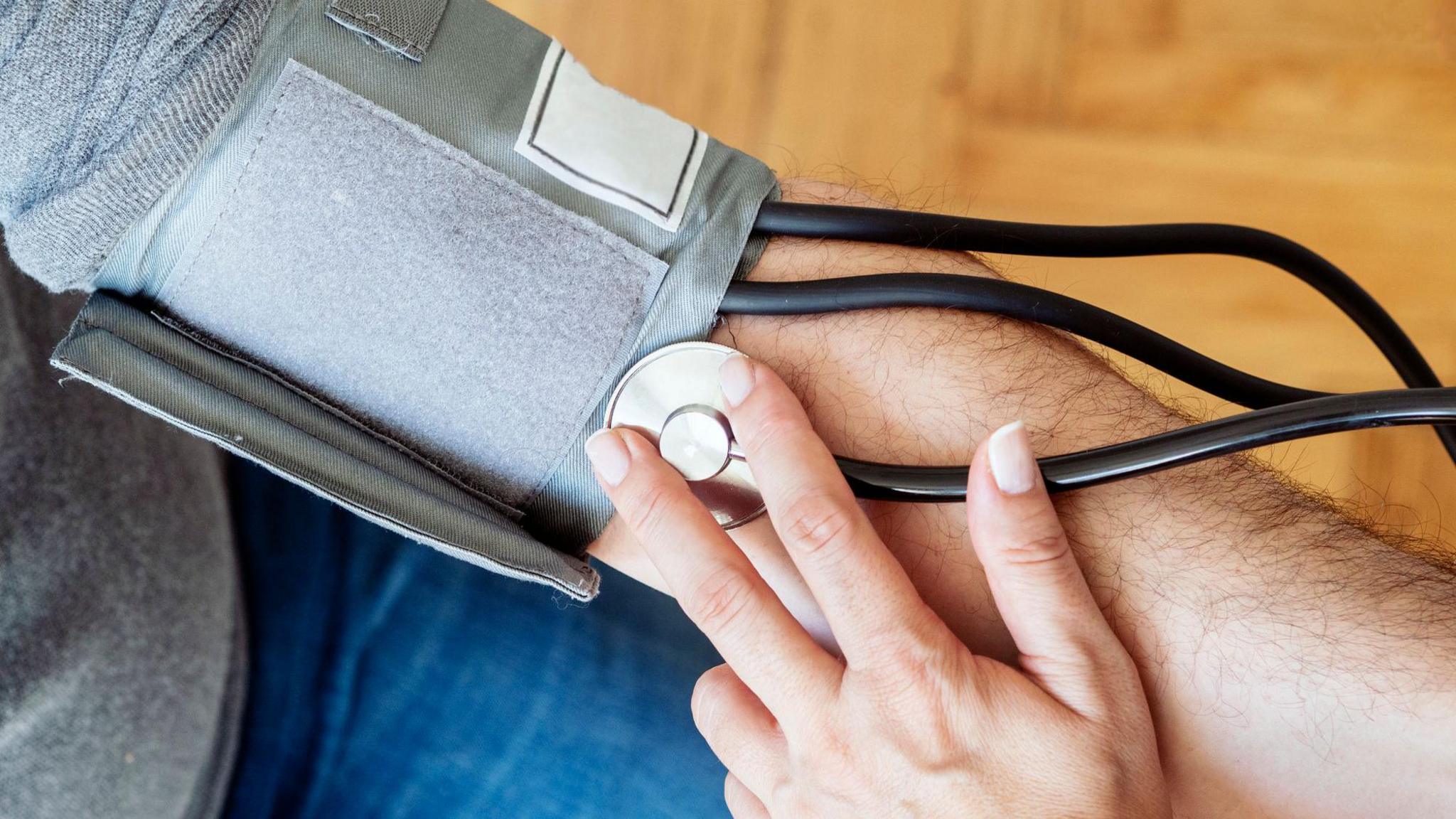'More support needed for women with heart conditions'

Faith Harrison said women with heart conditions "need to be listened to"
- Published
A 22-year-old who suffered a major heart attack wants women with heart conditions to be taken more seriously.
Faith Harrison, a fitness coach from Shropshire, went to hospital in January because she felt ill after a hockey match.
She said clinicians initially told her she was having a panic attack or had a stomach bug before correctly diagnosing and treating her.
The British Heart Foundation said women were often under-diagnosed or mis-diagnosed, under-represented in medical studies and trials, and needed to be more aware of the symptoms.

Faith Harrison was an avid gym-goer before her heart attack
Ms Harrison was taken to a specialist unit at the Royal Stoke University Hospital and was told she had a patent foramen ovale – a small hole between the top two chambers of the heart.
Tests revealed a blood clot had travelled through it and was blocking her left coronary artery by 90%, known as a widow maker heart attack.
She was told it was a congenital condition.
"I've always looked after myself physically, mentally and emotionally, so when they told me what was going on I couldn't believe it," she said.
Despite a successful operation to remove the clot, she is still at risk of heart arrhythmias and is waiting to have a defibrillator fitted.
She also said she expected to be told she cannot have children as a result.
Ms Harrison believes it could have been different if her heart condition had been spotted sooner and called for regular scans for women.
Ms Harrison also said tests should made routine, "so its not a scary situation for people".
"We need to be listened to," she said.
British Heart Foundation (BHF) said 3.6m women in the UK are affected by heart and circulatory diseases and that it is the number one killer for women in the UK.
Its associate medical director Dr Sonya Babu-Narayan said: "The system reflects our society where there is a myth that heart disease is a man's disease only."
She said the symptoms of heart disease in women needed to be taken more seriously and added: "When we do seek help clinicians may or may not believe us."
But it also said: "Women may be less likely to get medical help and treatment quickly, despite the warning signs."
The British Heart Foundation says the symptoms of a heart attack can vary from person to person, but "there are no symptoms that women experience more or less often than men".
Common symptoms for women and men include:
A chest pain or discomfort that comes on suddenly and does not go away. The pain may feel like pressure, tightness or squeezing and can spread to your arms, neck, jaw, back or stomach.
A shortness of breath or difficulty breathing with or without chest discomfort
Feeling dizzy, light-headed or faint
Feeling sick, indigestion, being sick
Sweating or a cold sweat
A sudden feeling of anxiety that can feel like a panic attack
A lot of coughing or wheezing.
The British Heart Foundation advises people with symptoms to call 999, sit down and stay calm, chew 300mg asprin and wait for the ambulance.
It has also produced guidance for women and heart attacks, external.
Get in touch
Tell us which stories we should cover in Shropshire
Follow BBC Shropshire on BBC Sounds, Facebook, external, X, external and Instagram, external.
- Published26 March 2024

- Published30 August 2024
